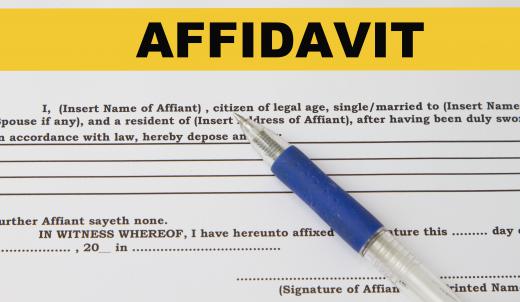A property transfer affidavit is a written legal document which must be filed whenever ownership of real property is transferred from one party to another. The affidavit is filed with the tax assessor's office of the city or township where the property is located. This action allows the tax assessor to properly assess taxes on the property and to determine the taxable value of the real property.
Information typically required to be disclosed on the form includes a legal identification of the property transferred, such as lot numbers and plat numbers; identification of the seller and the transferee or buyer; the date the transfer took place; and the amount of any currency exchanged in consideration of the transfer. Depending on the requirements of the city or township where the property is located, the property transfer affidavit may include other information regarding the transfer, as well. These requirements might include the property identification number, which usually can be found on the most recent property tax bill or assessment notice.

The new owner of the property is charged with the responsibility of filing this document in a timely manner. A new property owner typically must file the property transfer affidavit with the assessor for the city or township where the real property is located within 45 days of the transfer. If it is not filed in a timely manner, a cash penalty may be charged. The property transfer affidavit usually must be filed regardless of whether a property deed is filed or not.

It is especially important when a person purchases a bank owned or non-occupied home to be sure to file the property transfer affidavit as soon as the real property transfer is completed. Non-resident property taxes are typically much higher than those paid by the primary resident of the property. Therefore, it can be advantageous for the new owner, if he plans to use the property as his primary residence, to file this form to have the taxes reassessed at the new, much lower, resident rate.
If the buyer is using a real estate brokerage to affect the transfer of real property, the real estate agent usually will include this form as part of the legal documents given to the buyer. The buyer then only has to take the form to the assessor's office in the city or township where the property is located and hand it to the clerk. Then, the clerk will time stamp the document to verify the time frame in which it was filed, and will file it with the other assessment documents pertaining to the property. If the real estate broker does not include this form or if a real estate broker was not used, such as a sale by owner transfer, the form can be obtained from the assessor's office and filled out by the new owner for filing.
